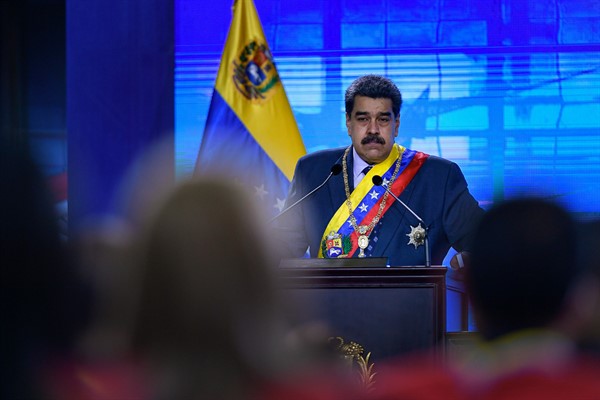Throughout former President Donald Trump’s four years in office, he made opposition to Venezuelan President Nicolas Maduro central to U.S. policy toward Latin America. That “maximum pressure” campaign largely rested on progressively tighter sanctions against the Maduro regime, with the goal of forcing his ouster in favor of opposition leader Juan Guaido, the former head of the National Assembly whom the U.S. and more than 50 other countries recognized as the country’s valid interim president.
This hard-line policy toward Venezuela was a rare show of support for democracy by the Trump administration, and it played well among politically important voting blocs like South Florida’s Cuban and Venezuelan American communities. However, its effectiveness was undermined by Trump’s own autocratic tendencies. Despite their professed ideological differences, Maduro and Trump have more in common than either of them would readily admit. Both of their governing styles have been based on personalization of power, disregard for checks and balances, the recruitment and retention of advisers based on loyalty rather than competence, the stoking of division and anger against a perceived elite class, and the demonization of dissent and of independent media.
Fortunately, in the U.S., democratic institutions and the rule of law held strong against a four-year assault. But in Venezuela, where checks on executive power were weaker from the start, democratic norms have crumbled, making the once-prosperous, oil-rich country a failed state. Since Maduro took power in 2013, the Venezuelan economy has contracted by almost two-thirds. One out of three Venezuelans is now food insecure. The capital, Caracas, has one of the highest murder rates in the world. And a United Nations-appointed panel recently determined that the government’s human rights abuses constituted crimes against humanity.

